In today's evolving work environment, it's essential to understand the nuances of negotiating job conditions that align with your professional aspirations and personal needs. A well-crafted negotiation letter can set the tone for a positive dialogue between you and your potential employer, ensuring that both parties feel valued and understood. Whether it's about flexibility, salary, or workplace culture, approaching these discussions with confidence can make all the difference. Ready to learn how to articulate your needs effectively? Read on for our comprehensive guide!
Clear Objective Statement
The objective statement clearly articulates the goal of the job seeker in a succinct manner. Seeking a professional position in a dynamic industry, the candidate aims to leverage skills in strategic negotiation and conflict resolution to enhance workplace conditions. A focus on fostering effective communication and collaboration signifies a commitment to creating a positive work environment, increasing overall productivity and employee satisfaction. Additionally, the job seeker intends to prioritize work-life balance and develop policies that promote mental well-being and job satisfaction among employees.
Professional Tone
Negotiating work conditions in a professional context involves discussing aspects such as salary, work hours, benefits, or remote work options. Clarifying expectations around these subsets is essential for a mutual understanding between employer and employee. Ensure all language remains respectful, direct, and clear to foster a constructive dialogue. Use specific examples and back up requests with industry benchmarks or personal experiences where possible, displaying a professional demeanor throughout the conversation. Focus on finding common ground that satisfies both parties for a successful negotiation.
Specific Terms and Conditions
Negotiating specific work conditions can significantly enhance job satisfaction and productivity. Key areas for discussion include flexible working hours, which can cater to personal circumstances or commuting challenges, including specific start and end times. Salary adjustments, important in reflecting industry standards, should be considered; researching average salaries for similar roles (for example, positions within the same geographical area or sector) can help inform discussions. Benefits such as remote work options (e.g., 2-3 days per week), allowances for professional development opportunities (like attending conferences or obtaining certifications), and holiday entitlements (including paid vacation days beyond statutory requirements) should also be addressed. Additionally, discussing career advancement opportunities (like mentorship programs or pathways for promotion) can clarify long-term growth and development within the organization.
Supporting Evidence
Supporting evidence for work conditions negotiation can be strengthened by specific salary benchmarks from industry reports, such as a 2023 survey by Glassdoor that indicates average salaries for similar roles in the technology sector, with averages around $85,000 annually for software engineers in metropolitan hubs like San Francisco. Additionally, examining labor market conditions, such as the current unemployment rate at 4.2% in the tech field, could highlight a demand for skilled labor, further justifying salary requests. Employee testimonials from platforms like Indeed affirm the need for better work-life balance, with a significant 67% of employees emphasizing flexible working hours as a top priority. Furthermore, local legislation, including the California Family Rights Act, mandates certain workplace accommodations, underscoring the importance of supportive work environments. These factors collectively provide substantial groundwork for negotiating improved work conditions during the job application process.
Polite Closing and Follow-Up
Effective negotiation of work conditions is critical in job application processes, influencing both satisfaction and productivity. Clear communication helps to establish expectations regarding compensation packages, flexible working hours, and remote work options. For instance, discussing salaries ranging from $60,000 to $80,000 reflects industry standards. Flexible schedules can lead to a better work-life balance, particularly in sectors like technology or creative industries. In-person meetings or video conferences can provide opportunities for open dialogue about these issues, nurturing professional relationships and fostering understanding. Following up two days after the initial discussion reinforces interest and commitment to securing ideal employment conditions.
Letter Template For Negotiation Of Work Conditions Job Application Samples
Letter template of request for flexible working hours in job application
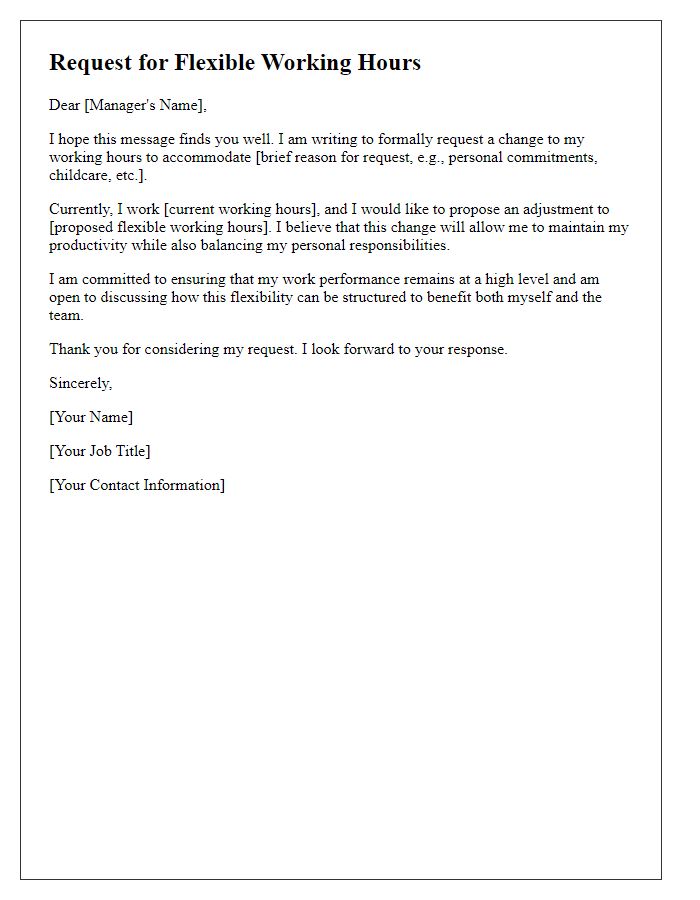
Letter template of proposal for remote work arrangements during hiring process
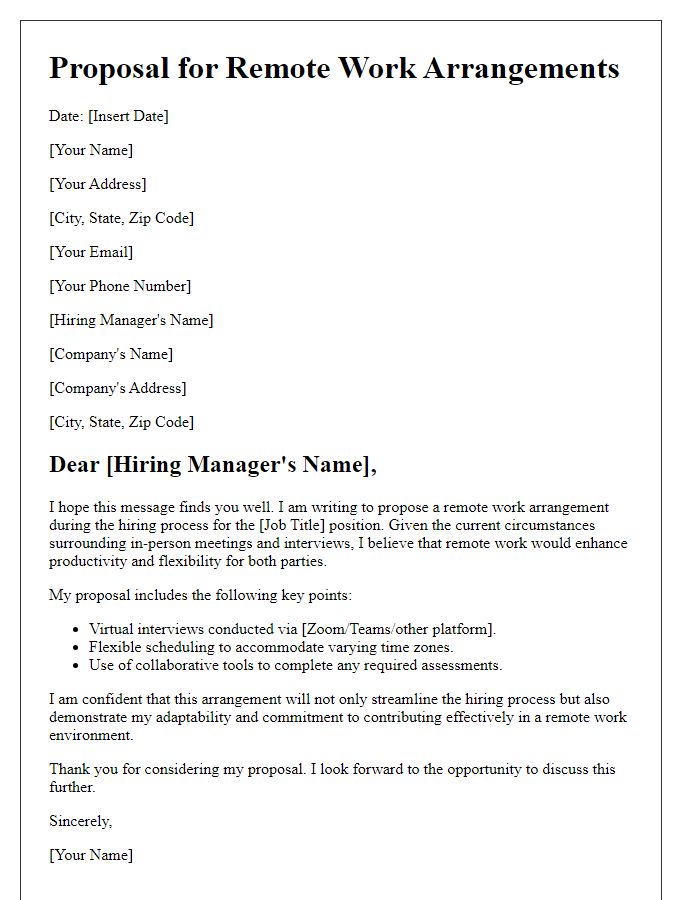
Letter template of inquiry about job benefits and support for work-life balance
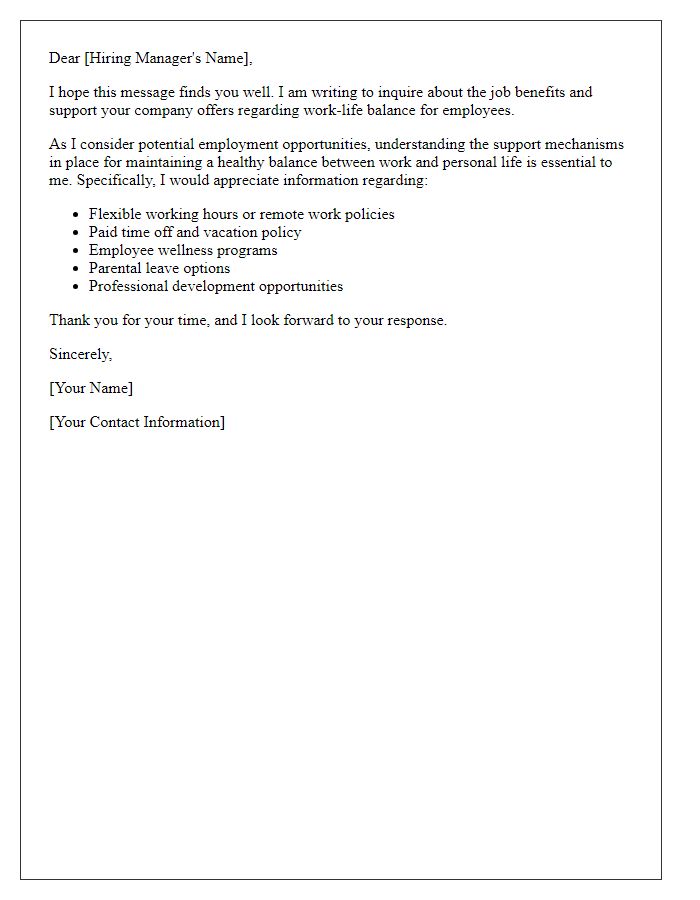
Letter template of discussion regarding career development opportunities in application
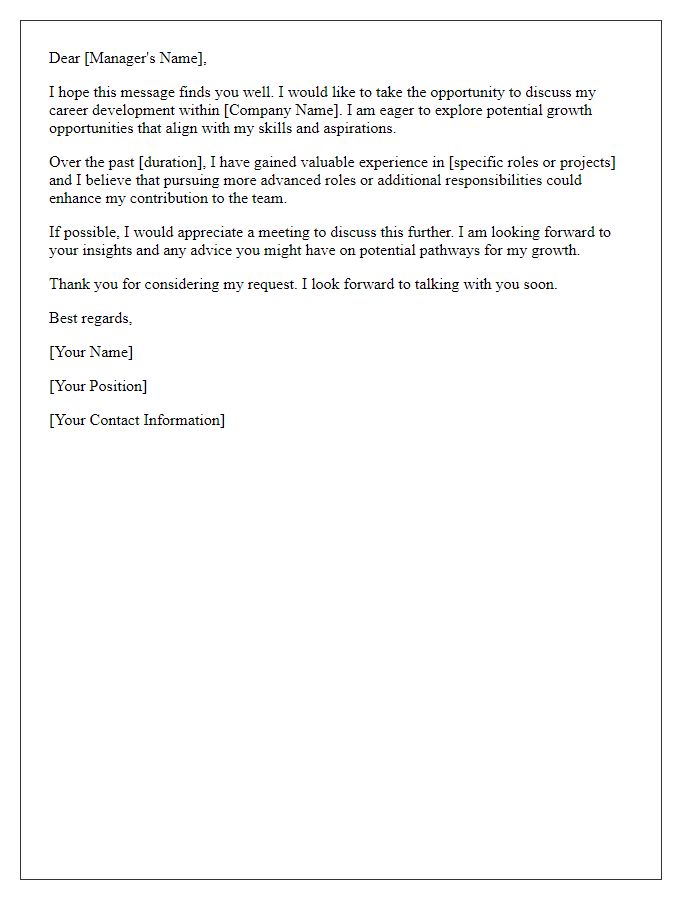
Letter template of suggestion for additional leave benefits in employment negotiations
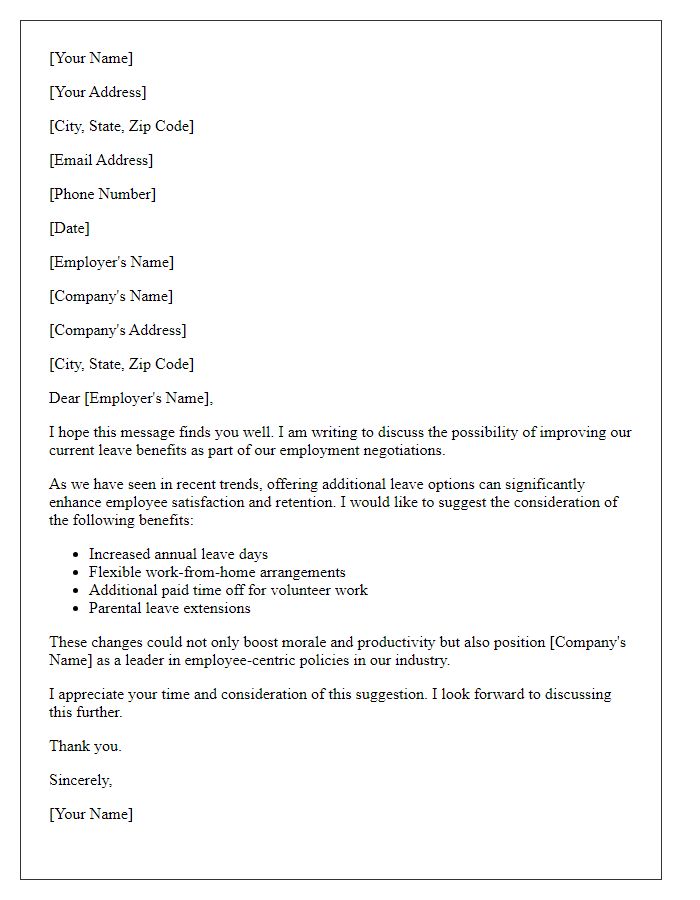
Letter template of appeal for enhanced workplace accommodations in job application
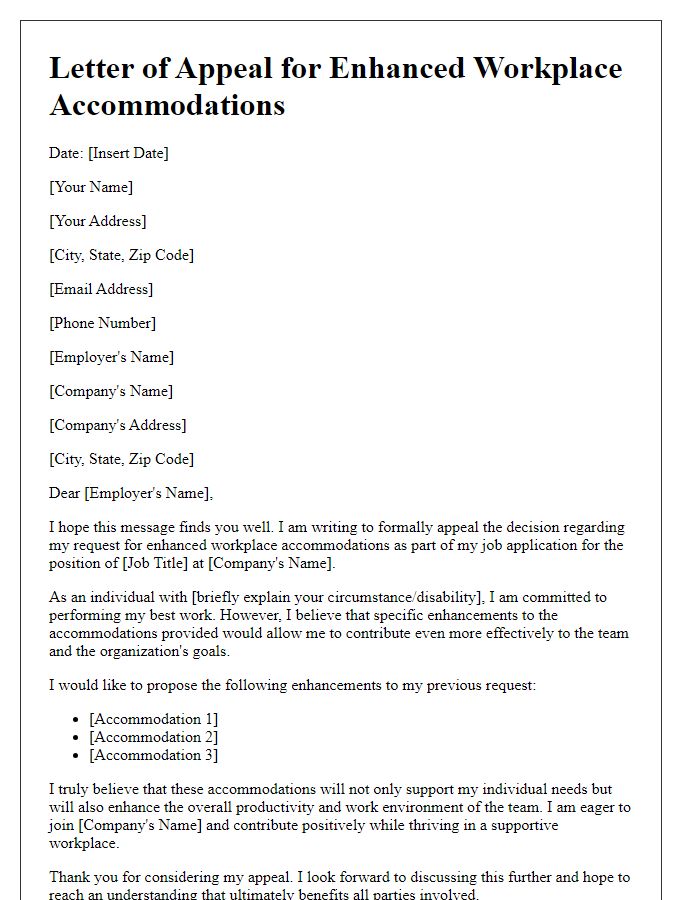
Letter template of request for professional development funding in new position
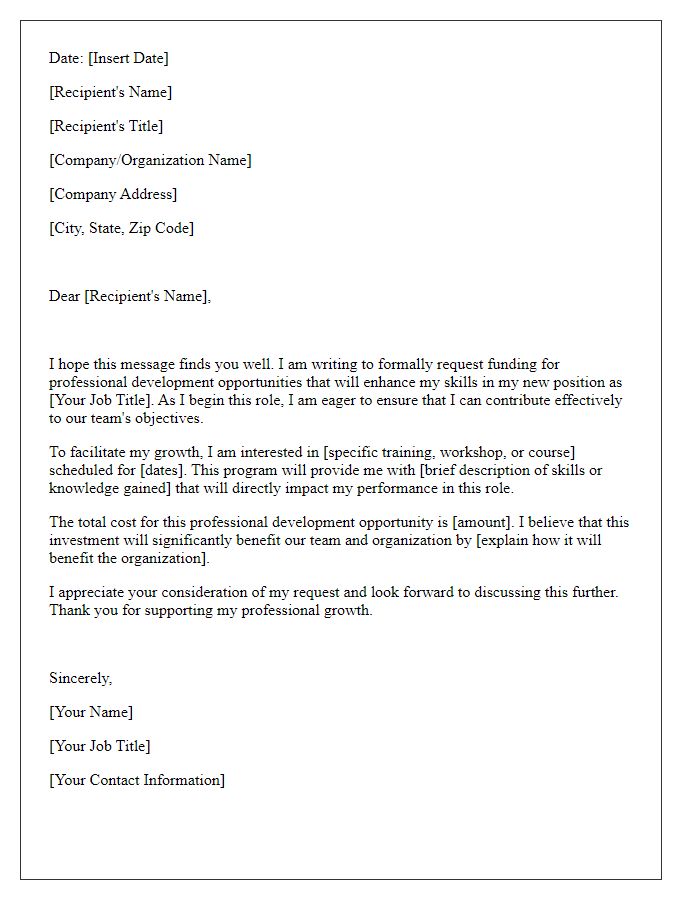
Letter template of proposal for a trial period of adjusted work conditions


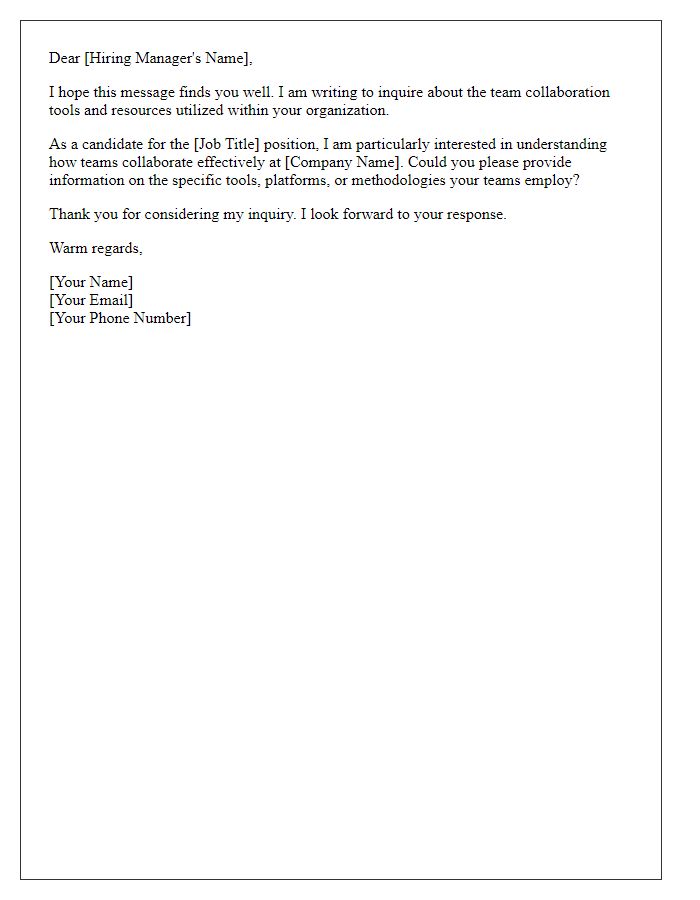


Comments